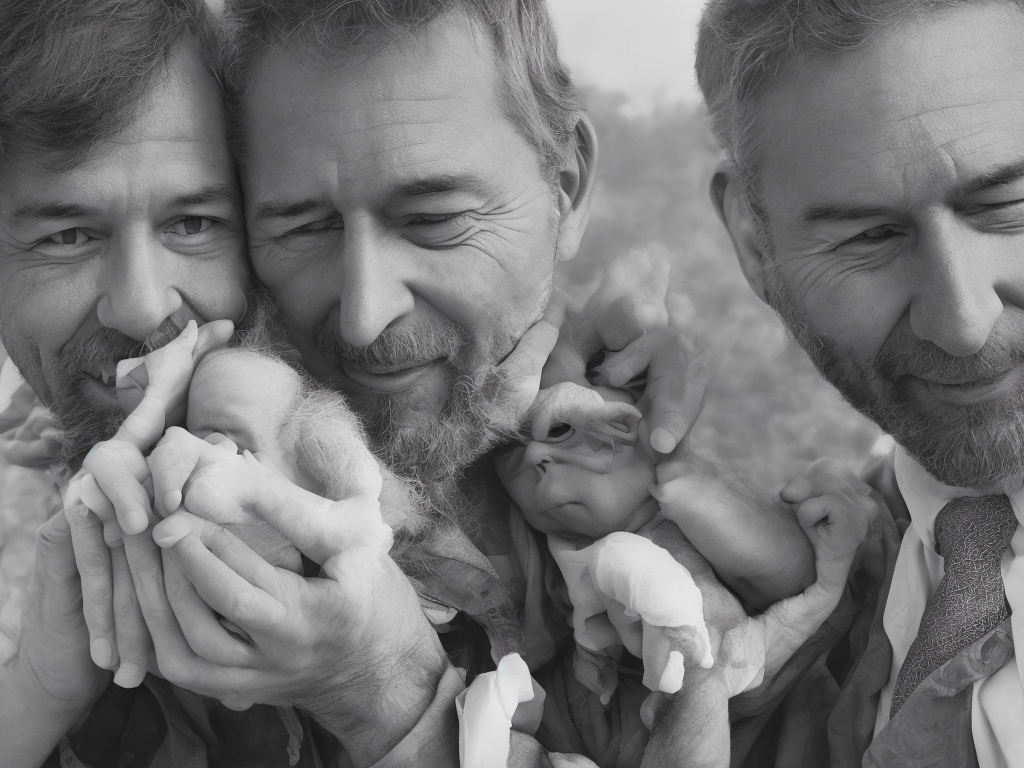
Father and dad are two words that are often used interchangeably to describe the male parent in a family. However, there is a significant difference between the two, and it is important to understand what sets them apart.
A father is a biological or legal parent who has contributed semen to conceive a child. In other words, a father is the male parent by definition. Any man who has a child is automatically considered a father, whether or not he is present in the child's life.
On the other hand, a dad is a term of endearment given to a father figure who has actively taken on the role of a father in a child's life. A dad is someone who is involved in the upbringing of a child, and who is there for them emotionally, physically, and mentally.
The main difference between a father and a dad is the relationship they have with their child. While a father merely shares a biological connection with their child, a dad has a deep emotional connection that is built over time.
A father can be absent from the life of a child, either by choice or by circumstance. However, a dad is someone who chooses to be present in their child's life, and who actively takes on the responsibilities of a parent.
To put it simply, a father is someone who can make a baby, while a dad is someone who raises one.
Being a dad is a conscious choice that a person makes. It involves taking on the role of a parent, providing emotional support, and being there for important milestones in a child's life.
A dad is someone who spends time with their child, listens to them, teaches them new skills, and is a positive influence in their life. They are there to offer guidance and support through tough times, and to celebrate the good times together.
On the other hand, a father may be absent from a child's life due to various reasons such as separation, divorce, career choices, or personal issues. However, even if a father is not present in the life of a child, they still hold the title of a father by definition.
It is important to recognize the difference between a father and a dad because it affects how we view the role of male parents in society. It also highlights the impact that a positive male role model can have on a child's development.
Children who grow up with an active dad in their life tend to have healthier relationships, higher self-esteem, and better emotional regulation. They are also less likely to engage in risky behaviours or develop mental health issues.
In contrast, children who grow up with an absent father figure may struggle with feelings of abandonment, low self-worth, and emotional instability. They may also be at a higher risk of engaging in risky behaviours or developing mental health issues.
It is important to note that while having an active dad in a child's life is beneficial, it is not always possible. Some children may have lost their dad due to illness, accident, or other unforeseeable circumstances.
In such cases, it is important for the child to have other positive male role models in their life, such as uncles, grandfathers, or family friends. These individuals can provide emotional support and guidance, and help fill the void left by the absent dad.
In conclusion, the difference between a father and a dad lies in the relationship they have with their child. While a father is the biological or legal parent of a child, a dad is someone who has actively taken on the role of a father figure in a child's life.
Being a dad involves being present, providing emotional support, and actively taking on the responsibilities of a parent. It is a conscious choice that a person makes, and it has a significant impact on a child's development and well-being.
While having an active dad in a child's life is beneficial, it is not always possible. It is important for children to have positive male role models in their life, whether it be a grandparent, uncle, or family friend. These individuals can help provide emotional support and guidance, and help fill the void left by an absent father figure.
 Self-Instruct
Self-Instruct